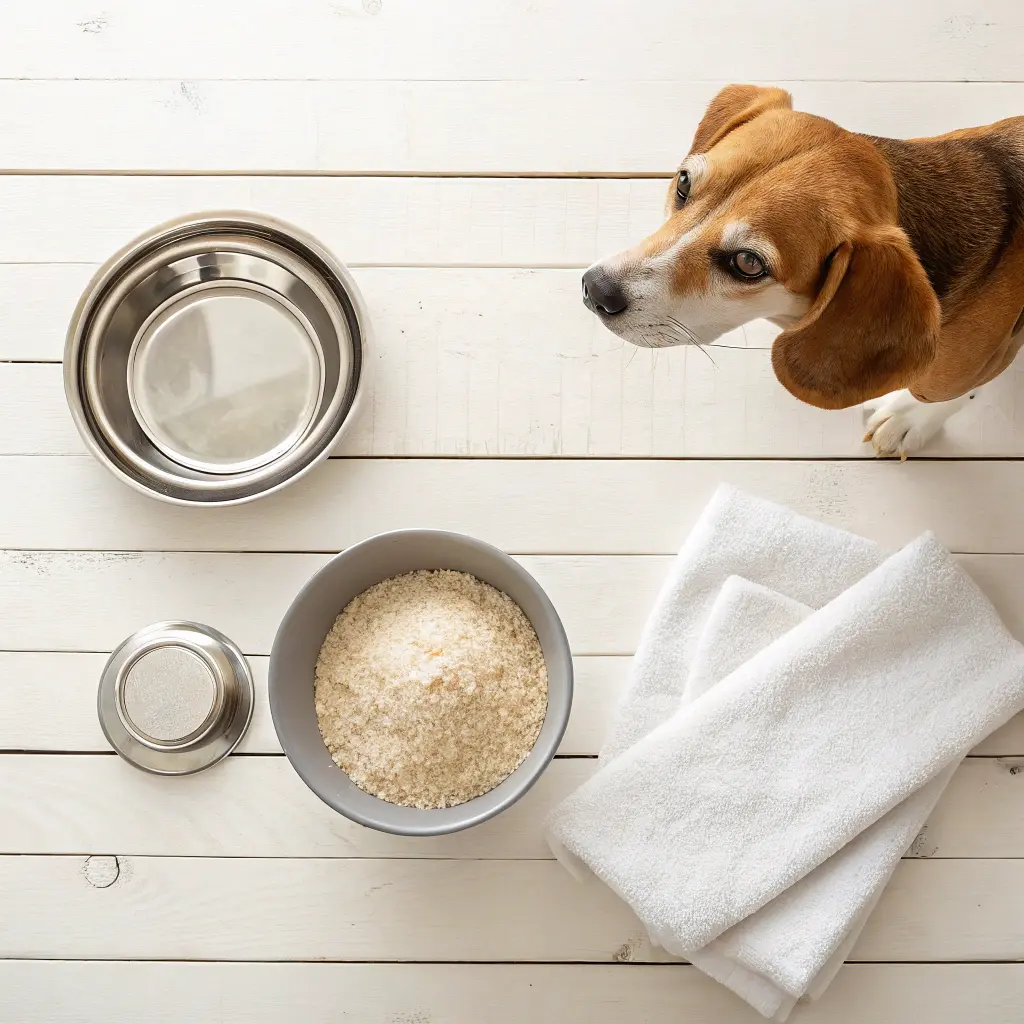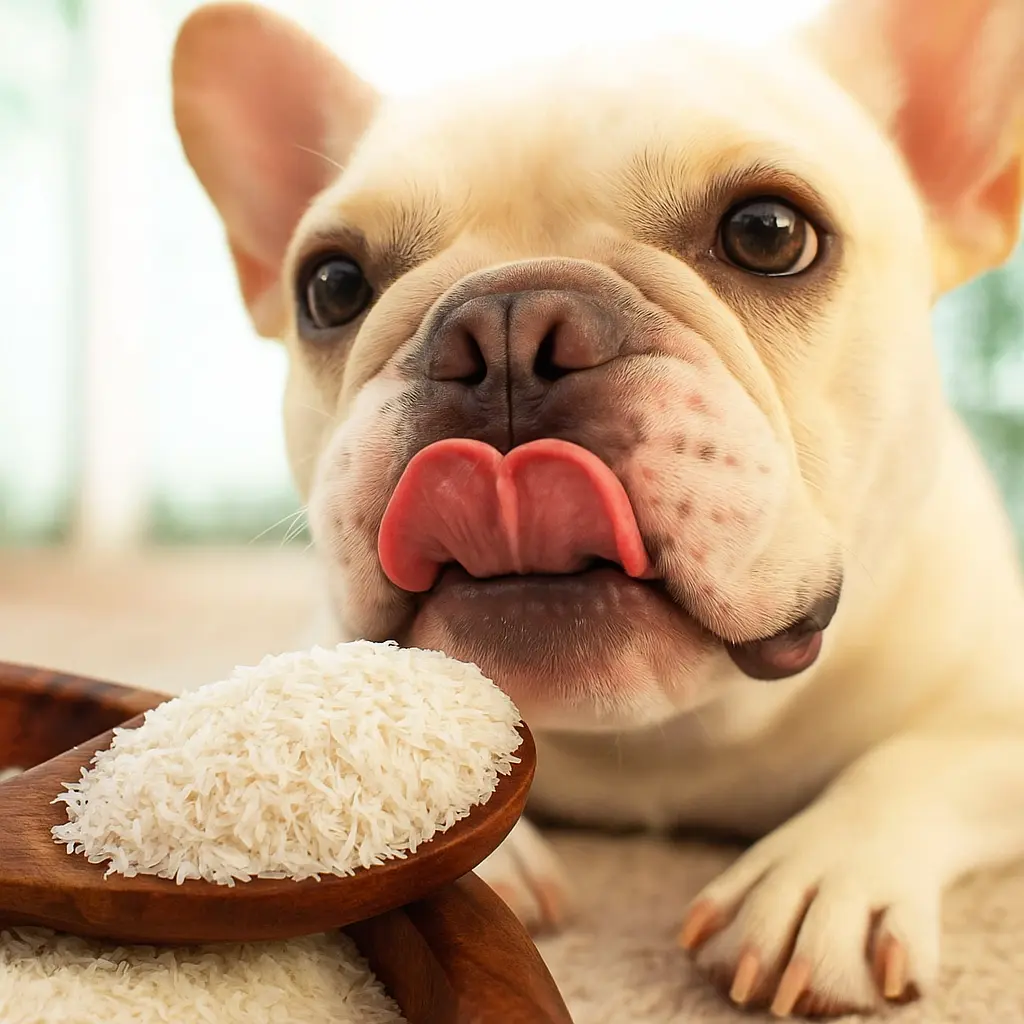Psyllium husk for dogs was not something I had heard much about—until I started looking for a gentle way to support my dog’s digestion. After noticing signs like bloating, irregular bowel movements, and a drop in energy, I wanted to explore natural options before turning to medication. That’s when the idea of psyllium husk for dogs kept coming up in articles, pet forums, and even conversations with fellow dog owners.
At first, I was skeptical. I had only ever seen psyllium husk used for people. But the more I read, the more I discovered how psyllium husk for dogs—when used correctly and under veterinary guidance—could help with digestive issues in a safe, effective way.
In this article, I’ll walk you through what I learned, what worked for me, and what you should know before trying psyllium husk for dogs yourself.
Table of Contents
Disclaimer: This article is based on personal experience and research. It is not medical or veterinary advice. Always consult a licensed veterinarian before introducing any supplement, including psyllium husk, into your dog’s diet.
How I Used Psyllium Husk for Dogs
- Product used: Plain, unflavored psyllium husk (no sweeteners or additives).
- Amount: Less than 1/4 teaspoon per day, mixed with food.
- Type of food: Soft or moist meals to help it blend well.
- Water: Always provided fresh water alongside the meal.
- Frequency: Once a day, only during short digestive episodes.
- Vet guidance: Dosage confirmed with a veterinarian before starting.
- Duration: Used for a few days until digestion normalized.
⚠️ Note: Always consult your vet before giving psyllium husk to your dog. Every dog is different, and incorrect use may cause harm.
What Is Psyllium Husk?
Psyllium husk is a type of soluble fiber made from the outer coating of the seeds of the Plantago ovata plant. It’s commonly used as a gentle digestive aid for humans, especially to relieve constipation or help regulate bowel movements. When mixed with water or other fluids, psyllium husk swells into a gel-like texture that helps bulk up stool and promote smoother digestion.
But psyllium husk for dogs works in a similar way. When added in small, vet-approved amounts to a dog’s diet, it can help improve stool consistency—whether the problem is diarrhea or constipation. It’s often recommended in cases where a dog’s digestive system needs gentle support, without turning to medications right away.
What makes psyllium especially appealing is that it’s odorless, tasteless, and easy to mix into food. For pet owners looking for natural solutions to common digestive problems, psyllium husk offers a simple, low-risk option—when used carefully and with proper guidance.

What Happened When I Tried It
After doing some reading and speaking with my vet, I decided to try psyllium husk for dogs in a very small amount. I used plain, unflavored psyllium husk powder—nothing with additives or sweeteners—and mixed just a pinch into my dog’s usual meal. I made sure he had plenty of water and kept everything else in his diet the same.
The first couple of days, I didn’t notice much. But by day three or four, his stool became more regular. He seemed more comfortable, less bloated, and gradually his energy levels picked up again. There wasn’t any dramatic change overnight—but I wasn’t expecting one. What I saw was a steady, natural improvement.
What reassured me most was how well he tolerated the psyllium. No signs of gas, no appetite loss—just smoother digestion and a bit more liveliness. I kept monitoring him closely and continued the supplement for a short time, only when needed.
This experience taught me that small, natural steps—especially when backed by solid information and professional advice—can go a long way in supporting a dog’s well-being.
How I Used Psyllium Husk Safely
Once I had a better understanding of how psyllium husk for dogs works, I wanted to make sure I introduced it in the safest and most effective way possible. I didn’t want to take any risks, so I followed a cautious, step-by-step approach based on what I had read and discussed with my vet.
Here’s exactly what I did:
- I used plain, unflavored psyllium husk powder, with no additives, no sugar, and no sweeteners.
- I started with a very small amount—less than 1/4 teaspoon for a medium-sized dog.
- I mixed it into soft food to make sure it blended well and was easy to eat.
- I made sure my dog always had fresh water available, since psyllium absorbs moisture and hydration is key.
- I only added it once a day, and only for a short period—not as a permanent addition to his diet.
- And most importantly, I watched closely for any side effects like gas, loose stool, or changes in appetite.
This approach helped me avoid any unwanted reactions. The goal wasn’t to overhaul my dog’s diet—it was to gently support his digestion when needed, and to stop once things returned to normal.
It’s a simple process, but one that requires attention and consistency. Every dog is different, so what worked in this case may not apply to all. That’s why I strongly recommend talking with your vet before trying psyllium husk or any supplement on your own.
Conclusion
Trying psyllium husk for dogs was one of those small, thoughtful steps I took when my dog’s digestion seemed off. I didn’t want to rely on medication right away, and I wasn’t looking for a quick fix—just something natural, gentle, and backed by good information.
What I learned is that psyllium husk for dogs can be a helpful tool when used properly: in small amounts, with plenty of water, and always under the guidance of a veterinarian. It’s not a cure-all, but it’s a safe option for managing common issues like constipation, diarrhea, or inconsistent stool.
If you’re wondering whether psyllium husk for dogs could benefit your pet, start by asking questions, doing your research, and speaking to your vet. Every dog is different, but sometimes, a simple change can bring noticeable relief—and peace of mind.
FAQs About Psyllium Husk for Dogs
Is it okay to give psyllium husk to dogs?
Yes, psyllium husk can be safe for dogs when used in small amounts and under the guidance of a veterinarian. It’s often recommended for mild digestive issues like constipation or inconsistent stool. Always choose the plain, unflavored version and start with a very low dose.
What are the side effects of psyllium in dogs?
Possible side effects include bloating, gas, or diarrhea, especially if the dosage is too high or the dog isn’t getting enough water. It’s essential to monitor your dog closely and reduce or stop use if any discomfort appears. Consulting a vet before starting is strongly advised.
Is pumpkin or psyllium husk better for dogs?
Both pumpkin and psyllium husk are commonly used for digestive support, but they work differently. Pumpkin contains natural fiber and moisture, making it gentle and palatable. Psyllium husk is a concentrated fiber supplement that can be more effective in certain cases. The better option depends on your dog’s specific needs and tolerance.
Can I sprinkle psyllium husk on dog food?
Yes, you can sprinkle a small amount of psyllium husk on your dog’s food, preferably soft or moist food so it mixes easily. Make sure your dog has access to fresh water, and always consult your vet to confirm the appropriate dosage and frequency.

